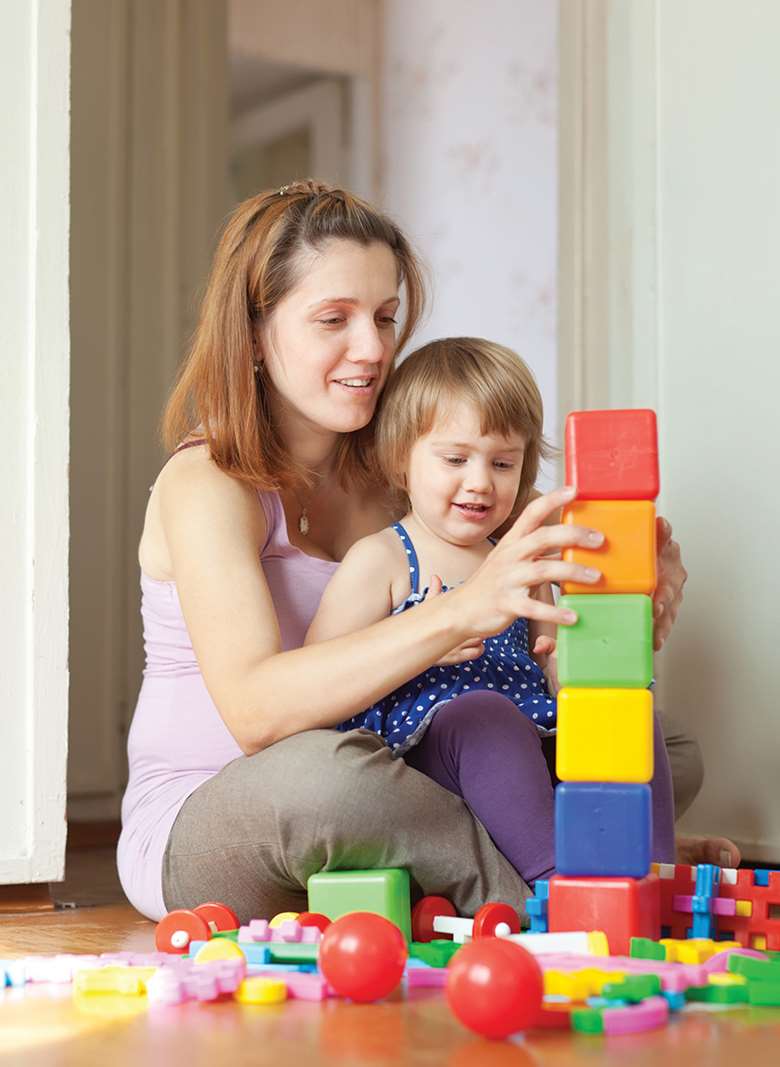EasyPeasy: Evaluation in Newham: findings from the Sutton Trust Parental Engagement Fund (PEF) Project
Achievement for All
Tuesday, November 27, 2018
This report evaluates one of the two trials of the EasyPeasy programme. EasyPeasy is part of the Sutton Trust/Esmée Fairbairn Parental Engagement Fund (PEF) project, and aims to improve child development by increasing positive parent-child interaction through play at home.

Research by Fiona Jelley and Professor Kathy Sylva, (2018)
EasyPeasy uses mobile phone technology to reach parents and carers. A dedicated mobile app is provided to families which provides inspiration and ideas for real-world games and activities, combined with detailed and relevant information on child development provided by video.
The games are designed to help parents to support children to develop the skills and capacities needed to make a strong start in school and life. The content is integrated with the practice at relevant children's centres, primary schools, and nurseries. This means that EasyPeasy also functions as a "digital outreach service" that extends, embeds and consolidates the work of practitioners.
Parents are connected in small virtual support groups, or "pods". The pods are co-ordinated by a "pod leader", who is a practitioner from a local setting who can monitor parents' progress and offer remote support through a dedicated desktop dashboard. Pod leaders receive training on digital outreach and support tools.
EasyPeasy has been trialled in Bournemouth and Newham councils. The Bournemouth trial was an individual-level randomised controlled trial (RCT) whilst Newham involved whole children's centres being allocated to different trial groups. This report focuses on the Newham trial.
The intervention: Engaging with parents
A two-group RCT was carried out in Newham over three months to assess the efficacy of EasyPeasy. Children's centres were allocated to either an intervention (family n=81 who received the app) or comparison group (family n=119 who did not receive the app until after the trial).
The evaluation sample consisted of eight children's centres (four per group). From 302 eligible families, a sample of 200 families with children aged three or four years was established, balanced on factors including the proportion of children in the setting with English as an additional language (EAL), eligible for free school meals (FSM) and with special educational needs (SEN).
Outcome measures (assessed pre- and post-test) were:
- Child Self-Regulation and Behaviour Questionnaire (CSBQ) (Howard & Melhuish, 2016)
- Tool to Measure Parenting Self-Efficacy (Kendall & Bloomfield, 2005)
- Parenting Stress Index (PSI) (Abidin, 1995)
The evaluation found that families in the intervention group (those with access to EasyPeasy) had significantly higher scores than the comparison group on two parent-reported outcomes:
- Children's cognitive self-regulation: such as the ability to "work things out for oneself", "persist in completing difficult tasks" and "making decisions independently". Cognitive self-regulation, including persistence and concentration, is agreed to be an important prerequisite of children's "school readiness".
- Parents' sense of control: Parents reported feeling more "in control" and had a greater sense of being able to "get their child to behave well", "respond to boundaries", and, personally, being able to "stay calm when facing difficulties".
The evaluators conclude that the findings for the intervention group suggests that EasyPeasy "can boost children's cognitive development through supporting play at home with their parents".
The evaluation compares findings to the 2016 evaluation of the Bournemouth trial (Jelley, Sylva, & Karemaker, 2016). This trial also showed significant positive benefits for the intervention group compared with the control group on children's cognitive self-regulation, as well as parenting self-efficacy. The samples in the two trials represented two very different populations: a large coastal town with a mainly white British population, and a densely-populated urban area in inner-city London with a multi-ethnic population.
The evaluation highlights that engaging parents, carers, and families is crucial, but to be effective approaches to engagement must offer families maximum access in ways that fit into family life and support the vital education that happens outside the school or setting.
Implications for practice
Although this report focuses on the experiences of families engaged with EasyPeasy, there are wider practice implications that can be inferred from the research, including:
- Parental and carer engagement is a key driver of young people's development of cognitive, metacognitive, and self-regulation capacities. Innovative approaches to engaging families should be encouraged and explored.
- Mobile digital technology allows schools and settings to engage with families on their own terms and at their own pace. As the use of mobile technology increases in parallel with the decrease in the cost of developing apps, schools and settings would benefit from exploring innovative ways to use mobile digital technology to engage, rather than inform, families.
- Available funding (for example pupil premium funding) may play a role in unlocking new ways to engage parents, carers, and families.
FURTHER READING
EasyPeasy Parenting App. Findings from an efficacy trial on parent engagement and school readiness skills, F Jelley, K Sylva, A Karemaker, Sutton Trust, 2016
Achieving Early Firm Foundation, Achievement for All, 2018




